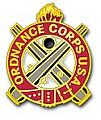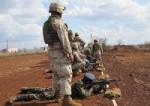How a ‘Good War’ in Afghanistan Went Bad By DAVID ROHDE and DAVID E. SANGER
Published: August 12, 2007
A year after the Taliban fell to an American-led coalition, a group of NATO ambassadors landed in Kabul, Afghanistan, to survey what appeared to be a triumph — a fresh start for a country ripped apart by years of war with the Soviets and brutal repression by religious extremists.
With a senior American diplomat, R. Nicholas Burns, leading the way, they thundered around the country in Black Hawk helicopters, with little fear for their safety. They strolled quiet streets in Kandahar and sipped tea with tribal leaders. At a briefing from the United States Central Command, they were told that the Taliban were now a “spent force.”
“Some of us were saying, ‘Not so fast,’ ” Mr. Burns, now the under secretary of state for political affairs, recalled. “A number of us assumed that the Taliban was too enmeshed in Afghan society to just disappear as a political and military force.”
But that skepticism never took hold in Washington. Assessments by the Central Intelligence Agency circulating at the same time reported that the Taliban were so decimated they no longer posed a threat, according to two senior intelligence officials who reviewed the reports. The American sense of victory was so robust that the top C.I.A. specialists and elite Special Forces units who had helped liberate Afghanistan were packing their guns and preparing for the next war, in Iraq.
Those sweeping miscalculations were part of a pattern of assessments and decisions that helped send what many in the American military call “the good war” off course.















Bookmarks